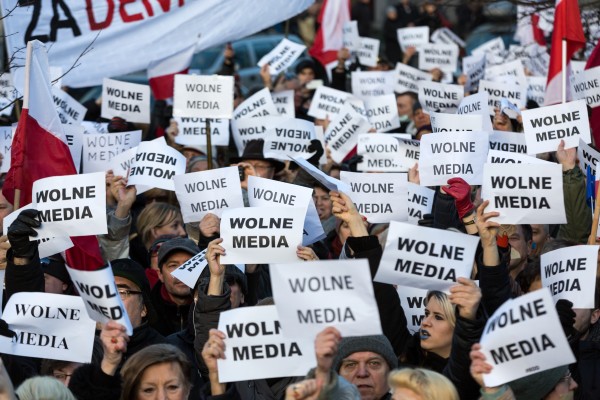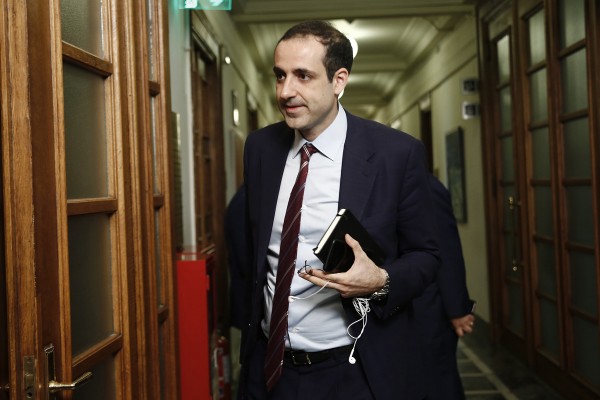H.E. Leonid Kuchma
President
Office of the President
Vul. Bankova 11
252005 Kiev
Ukraine
Fax: +380-44-293 10 01 / 293 73 64 / 291 61 61
Vienna, 31 March 2004
Your Excellency,
The International Press Institute (IPI), the global network of editors, media executives and leading journalists in over 120 countries, is worried by the civil defamation action brought against the Ukrainian media outlets that form the Telegraf Information and Publishing Group (TIPG).
According to information provided to IPI, the civil defamation action started after the publication of an article titled, “Privatbank cuts down its activity in metallurgy and chemical recovery”, which appeared on the website of the media outlet
While versii.com is an independent enterprise and all complaints against versii.com should be addressed directly to them, the claims were filed against TIPG. Not only does TIPG believe these defamation claims to be groundless, they view them as an attempt to paralyse the activity of TIPG by hindering its financial activities.
The civil defamation claims were brought before the courts simultaneously in different regions of the Ukraine. According to the claims, the same person is the plaintiffs’ representative in the defamation actions registered in both the Ternopil court and the Lychakivskyi district court of Lviv.
Subsequently, in late January and early February of this year, several district courts agreed to hear the defamation claim and to freeze a number of TIPG’s bank accounts. The decision of the court was made ex parte and, as a consequence, TIPG did not receive any information regarding the pre-trial hearing. TIPG is appealing the decision to freeze the accounts but at present it needs the court’s permission to use the accounts.
TIPG also has a number of other concerns regarding the speed with which the legal action is being processed before the courts. In particular, the expedited service of documents to the courts has apparently made it difficult for TIPG to adequately defend itself. TIPG is also deeply concerned that the large number of litigants and the financial threat to the company is evidence of economic pressure on the media organisation.
By excluding TIPG from the hearing regarding the freezing of assets, IPI believes that the defendant’s ability to argue its case was seriously undermined. An ex parte hearing, as opposed to an inter partes one, should only be used where there is an extreme likelihood that the defendant will seek to move assets beyond the reach of the courts. The ex parte hearing also denied TIPG the right to argue it would not have sought to avoid its legal responsibilities. In consequence, TIPG now has a considerable battle in overturning the original decision of the court.
While IPI makes no comment on the information contained in the article, it regards the failure to allow an inter partes hearing in this case as a failure of civil legal procedure. IPI would remind Your Excellency that unless there are overwhelming reasons not to do so a defendant has a fundamental right to offer a defence. Under civil law procedure, TIPG should also have an adequate time in which to prepare such a defence.
We thank you for your attention.
Yours sincerely,
Johann P. Fritz
Director


